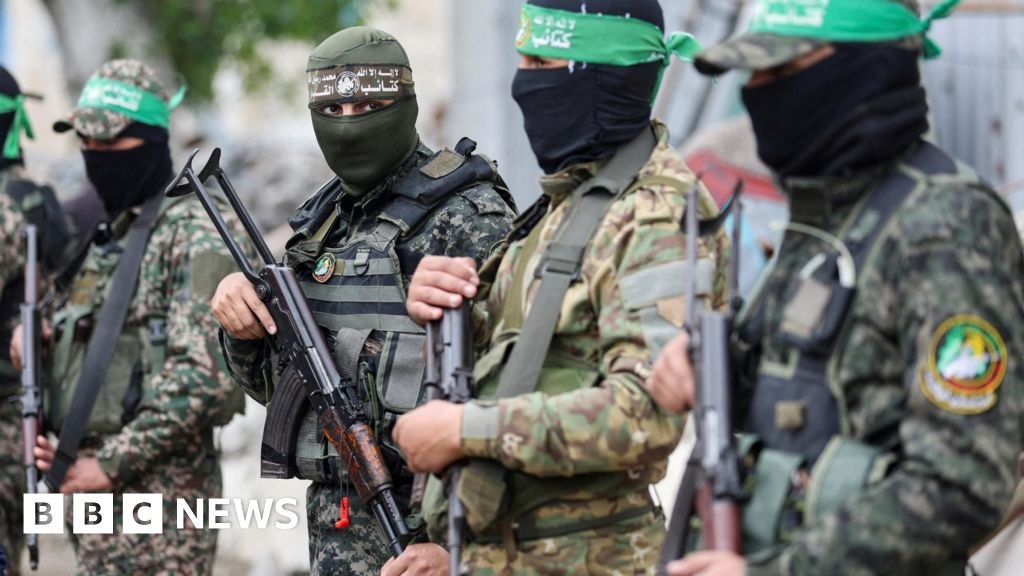With the confirmed killing of Hamas's top military commander Mohammad Sinwar in an Israeli strike, a chapter has closed on the elite leadership group in Gaza that orchestrated the events of 7 October, 2023.
Sinwar's demise follows the confirmed killings of other central figures who sat on what came to be known inside Hamas as the War Council.
Sinwar, his brother Yahya, Marwan Issa and a fifth unidentified figure formed the clandestine core that decided on and directed the unprecedented assault on Israel – one which shook the region and set off the conflict still unfolding in Gaza.
The War Council, sometimes also known as the Quintet Council, operated under conditions of extreme security and secrecy.
Direct meetings between its members were exceedingly rare. Instead, communication occurred through older technology deemed more secure, like cable phones, or via trusted intermediaries, all in an effort to minimise the risk of interception or detection.
This level of secrecy was not just tactical: it reflected the council's critical role in Hamas's strategic decision-making, especially in preparation for what became the most complex and deadly attack in the organisation's history.
The known members of the council included:
The 7 October attack marked a seismic shift in the Israeli-Palestinian conflict.
The scale and brutality of the attack stunned observers worldwide – not just for its immediate impact, but for its unprecedented scale.
Hamas's military preparations took years – including extensive tunnel construction and the steady accumulation of rockets and weapons – but few analysts, regional actors, or even rival Palestinian factions foresaw the magnitude of the offensive.
The group had long maintained strict control over Gazans and had often imposed harsh economic measures, including heavy taxes, on an already impoverished population to fund its military build-up.
Yet even within the movement, there appears to have been a limited understanding of the scale and consequences of the plan hatched by the War Council.
Its demise raises a profound question: what exactly drove its members to pursue a course that many Palestinians have described as politically suicidal?
With Israel's overwhelming military response and the international isolation that followed, the 7 October attack has increasingly been viewed as a desperate gamble – one that lacked a clear political exit strategy and led to massive suffering for Gaza's civilian population.
Now, with most of the core decision-makers dead, uncovering the deeper motivations and strategic calculus behind the attack may no longer be possible.
What internal debates occurred within the council? Were there dissenting voices? Was this a bid for regional relevance, a provocation timed with regional shifts, or a last-ditch effort to break a long-standing siege?
Answers to these questions may have died with the men who conceived the plan.
The dismantling of the war council leaves Hamas facing a potential leadership vacuum at a critical time.
Its military capabilities have been severely degraded, its political leadership – who operated out of Qatar until November 2024, after which their whereabouts became unclear – is under intense pressure, and its traditional mechanisms of control within Gaza have been deeply disrupted.
The absence of a centralised strategic command may lead to fragmentation within Hamas, or the rise of new, perhaps more radical factions.
Alternatively, it may open a pathway for recalibration – if not by Hamas, then by other Palestinian actors seeking to fill the void left behind.
The fall of Hamas's War Council marks the end of a shadowy but powerful inner circle that shaped one of the most consequential decisions in the movement's history.
Whether their legacy will be seen by Palestinians as one of bold resistance or catastrophic miscalculation, one thing is certain: with their departure, a defining era in the leadership of Hamas has come to a close.
The attack raises more questions over whether Israel’s use of force is proportionate, as required by international law.
The Israel- and US-backed Gaza Humanitarian Foundation has strongly denied the allegation.
Many children and women were reportedly among those killed when a school in Gaza City and a tent in al-Mawasi were hit.
A Hamas official tells the BBC the group is "ready" for a deal if it ends the war, but optimism remains low.
The group could be banned as soon as Friday under government plans.
Copyright 2025 BBC. All rights reserved. The BBC is not responsible for the content of external sites. Read about our approach to external linking.
Hamas faces leadership vacuum with demise of Gaza 'War Council' – BBC



